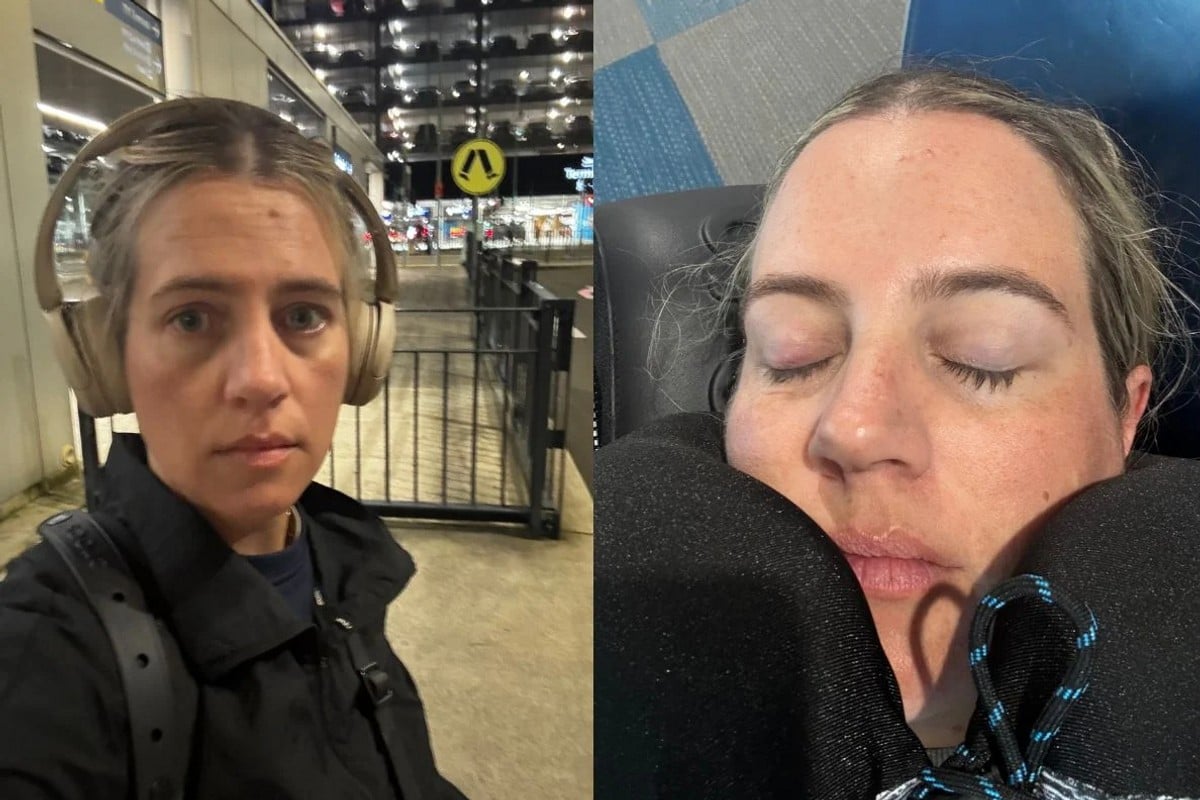
If you want to support independent women's media, become a Mamamia subscriber. Get an all-access pass to everything we make, including exclusive podcasts, articles, videos and our exercise app, MOVE.
I recently returned from Europe and had the worst jet lag (I know, cue the violins). But it was torture. I could not sleep past 2:30am for the first four nights.
It was nearly to the point of losing sanity from sleep deprivation. It took me a full week to return to a sense of normalcy and being able to sleep.
I wanted to understand: was it just the 'returning to real life' and work doldrums?
Why is it you can get off the plane from Australia when arriving at your holiday destination and seemingly skip into a new time zone so much easier than the way back?
Turns out it's more than just those holiday feels, siestas and sunshine.
Watch: Modern Etiquette: Travel. Post continues below.
What actually is jet lag?
It's essentially a mismatch between your body's internal clock and the local time at your destination. Your circadian rhythm expects daylight and darkness based on where you took off, so when you cross several time zones, that rhythm stays stuck.




























































































